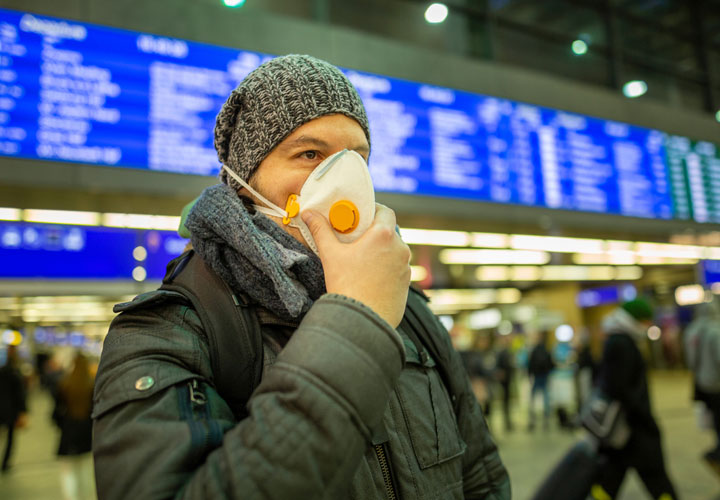
Quarantine the Same as Imprisonment?
The coronavirus has caused hysteria around the world and has resulted in quarantine situations around the US and if you were to find yourself in one of these quarantines then you would certainly ask if the circumstances and restrictions you’re enduring for a non-criminal are legal.
A quarantine is a restricted area for officials to observe people who could have been exposed to and potentially be infected with a contagious disease. The people inside are required to remain there for monitoring during the incubation period (14-days for the coronavirus). There seems to be commonalities with this and prison of course, no one is allowed to leave, your stay in the quarantine area was decided by local state and tribal authorities is backed by Federal legislation, and you have to comply with the rules of the quarantine while living there.
According to the US Department of Health and Human Services Center for Disease Control and Prevention’s (CDC) order for quarantine, you will be given the location of where you are allowed to stay, may not leave while under observation, and have to adhere to medical examination. Should you not cooperate with staying inside the quarantine zone, should you not cooperate with federal, state, or local health organization’s request for information regarding your travels and who may have been in contact with, or if you do not comply with the medical examination, you may face penalties that include fines and jail time.
Before you begin to fear for everyday life that the government can abuse this power at any time, take comfort in the fact that the government has to have scientific backing for such an extreme measure. The CDC and local health authorities first need to determine if a disease or disorder presents a public health emergency or if they need to respond to a rapidly infectious diseases or bioterrorist attacks.
Additionally, there are standards that state, local, and federal governments have to adhere to when placing citizens in quarantine zones. The department of Health and Human Services must provide food and water, medical treatment, and means for you to communicate with family while in quarantine.
Now this pertains to quarantine rules and regulations in the US, other countries may have their own local protocols and procedures. However other countries may not have the same regulations to follow for quarantines and with the recent coronavirus outbreak, some countries have performed quarantine situations that make Americans cringe at the thought of.
The entirety of Wuhan city, China, which is home to over 50 million people, has been placed in a state of quarantine and officials are going door-to-door to search for possibly infected people. However China is not the only government taking extra precautions, even the US is having its own citizens under multiple screening processes before returning to everyday life.
Take for example the American-passengers of the Japanese Diamond Princess cruise ship. There 3,700 total passengers and crew were forced to remain on the ship for 14-days. There were reportedly 634 cases of infected people on board that left the ship after being diagnosed. Between 600-800 people who were deemed healthy were allowed to leave however the 300 Americans on board that were looking to return home to their families will have to endure another, US, incubation period. That means another 14-days in quarantine upon arrival on US soil, adding up to almost to almost a total month that the American passengers have been in quarantine conditions. Naturally, some of these Americans have shared their frustration, saying that their government should have allowed them to return home much earlier if they were going to be forced to quarantine again regardless of being released by the Japanese officials.
Keep in mind that both of these quarantines were imposed by the two different entities, both of which have the legal authority to do so. The government of Japan upon learning that passengers of the Diamond Princess cruise ship were infected, enforced a quarantine and did not allow passengers in the docks of Yokohama, Japan. Now that American officials have learned of the high percentage of infected individuals that came off the ship, they took extra precautions in allowing the return of their citizens.
Then comes the question of the overall effectiveness of quarantine zones, particularly in a cruise ship, which the Japanese government has received scrutiny for its decision to do so. Kentaro Iwota, an infectious disease specialist from the University of Kobe Hospital claimed that the conditions of the cruise ship quarantine was “completely inadequate” for infection control.
As nightmarish as these such conditions might seem to you, your government has the legal authority and the responsibility of the public health to consider in doing this. Legally you have rights, however in circumstances of quarantine, the needs of the many outweigh the needs of the few and confinement for non-criminals can be legal and federally powered when it comes to public health.


